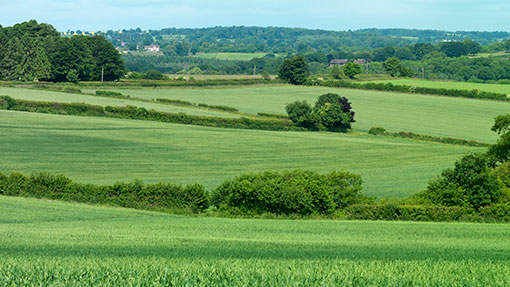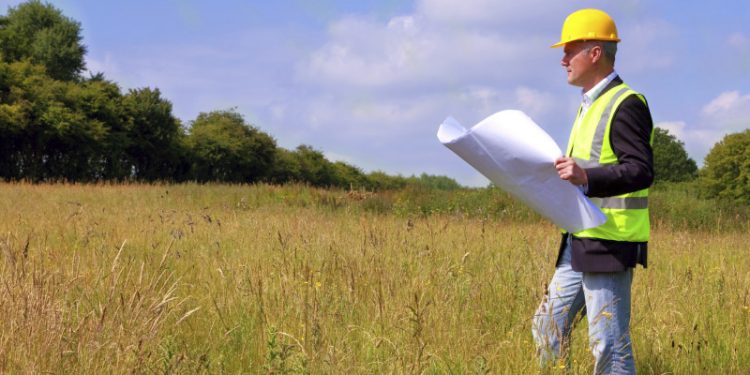The United States real estate market had a pretty good start in the first few months of 2020. In both January and February this year, the estimated sales across all types of property were $45 billion. However, this positive growth was stopped in its tracks as the Covid-19 pandemic hit the country.
There was a significant decline in real estate development, leasing, and sales as businesses closed down and people were told to stay in their homes. Sales volumes made a downturn in March and April, causing great distress and concern for real estate investors.
Land sales also experienced the same fate in the first quarter of 2020. January and February sales were higher than the first two months of 2019, but sales volumes were down in March and April. For you to learn more about the impact on land sales by the Covid-19 pandemic, take a closer look at these facts below.
Land Sales in the First Quarter of 2020 Amounted to $21.6 Billion
In the first quarter of this year, land sales in the United States amounted to $21.6 billion, registering a 7.4 increase from the fourth quarter sales of 2019. which was $20.1 billion.
However, in a year-over-year evaluation of the first quarter of 2020, land sales were down by 3.9%. It means that the first quarter of this year marked the third successive quarter to encounter a downswing from the previous year.
The Pandemic Has Impacted Sales of Land for Retail Use
The effect of the Covid-19 pandemic on land sales differs from one sector to another and is in accordance with a particular economic activity that has been hit the most.
According to U.S. land brokers, the crisis brought by the Covid-19 pandemic has negatively affected the sales of land properties that are zoned for retail. Seventy-six percent of land brokers have indicated this negative development in this particular sector.
So far, land used for retail is the sector that’s experiencing the broadest decline in terms of sales. Then, land zoned for office and urban residential purposes comes in second and third, according to 62% and 54% of land brokers respectively.
The decrease in the sales of land for retail use is because many physical retail shops and stores have been closed down to flatten the curve of Covid-19 cases. That’s why many land buyers in this sector are hesitant to make a purchase due to the uncertainty of making profits.
No Significant Negative Effect on Suburban Residential Land Sales
Fifty-two percent of land brokers in the United States indicate that the Covid-19 pandemic has no significant negative impact on sales of land used for suburban housing.
Although buyers’ activity is at a slow pace now, many people are still buying multi-family houses located just outside major metropolitan areas. Also, land developers of this type of land are looking at the silver lining that there will be an economic boom in this sector in the coming years.
Perhaps, the reason behind this is the interest of homebuyers in houses near the cities but aren’t densely populated. This mindset is reinforced by the fear of the coronavirus disease, which brought high-record Covid-19 cases in major cities. Now, they want to invest in these suburban resident sites to feel safer in case another pandemic will emerge in the future.
On a side note, housing for low-income individuals is still needed in a lot of costly coastal markets. Then, the appeal of primary markets stays the same even though liquidity is tougher for now.
Agricultural Land Sales Are Also Not Significantly Affected
According to 28% of U.S. land brokers, sales of land for agricultural use have seen no significant negative impact from the coronavirus crisis.

Of course, this shows that land properties zoned for agricultural purposes are essential because they’re used for growing food crops. They can also serve as a hedge against a major economic decline.
If you’re a land investor, make sure to look for agricultural land that’s suitable for planting crops with a shelf life that can last for extended periods of time. Planting such types of crops are considered essential agricultural operations, especially in times of crisis.
Parts of the Industrial Land Sector are Affected
Thirty percent of land brokers have seen a negative impact brought by the pandemic on parts of the industrial land sector. The disruption of global supply chains is the reason behind this decline in industrial land sales. However, there’s a projection that industrial land sales will recover immediately after things go back to normal.
Takeaway
The Covid-19 pandemic has caused a lot of damage to major economic activities globally. This problem also stretches out to the real estate industry, as land sales dropped by significant numbers this year. What we can only hope is that this crisis will be over sooner so that the market can bounce back to its heyday.






